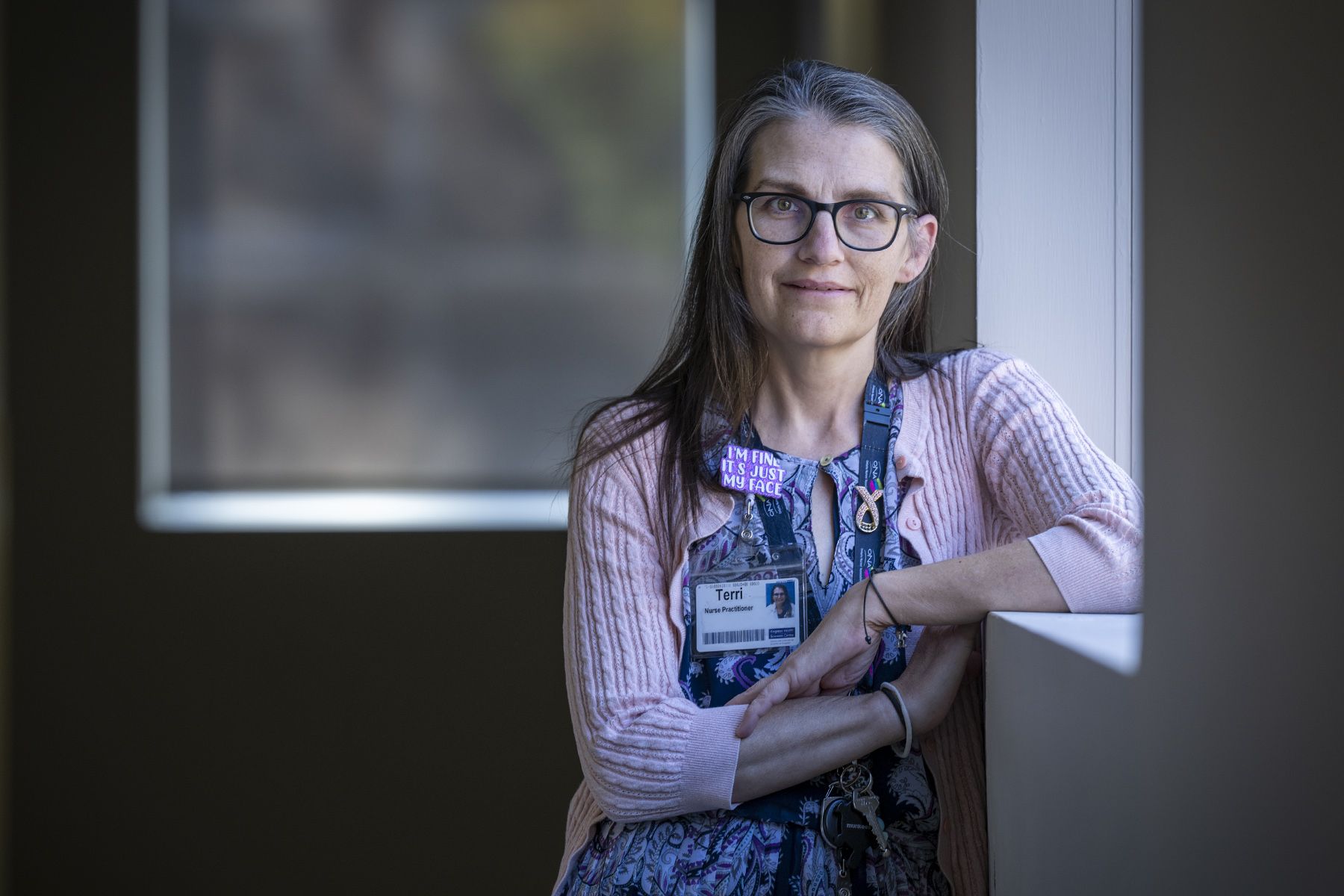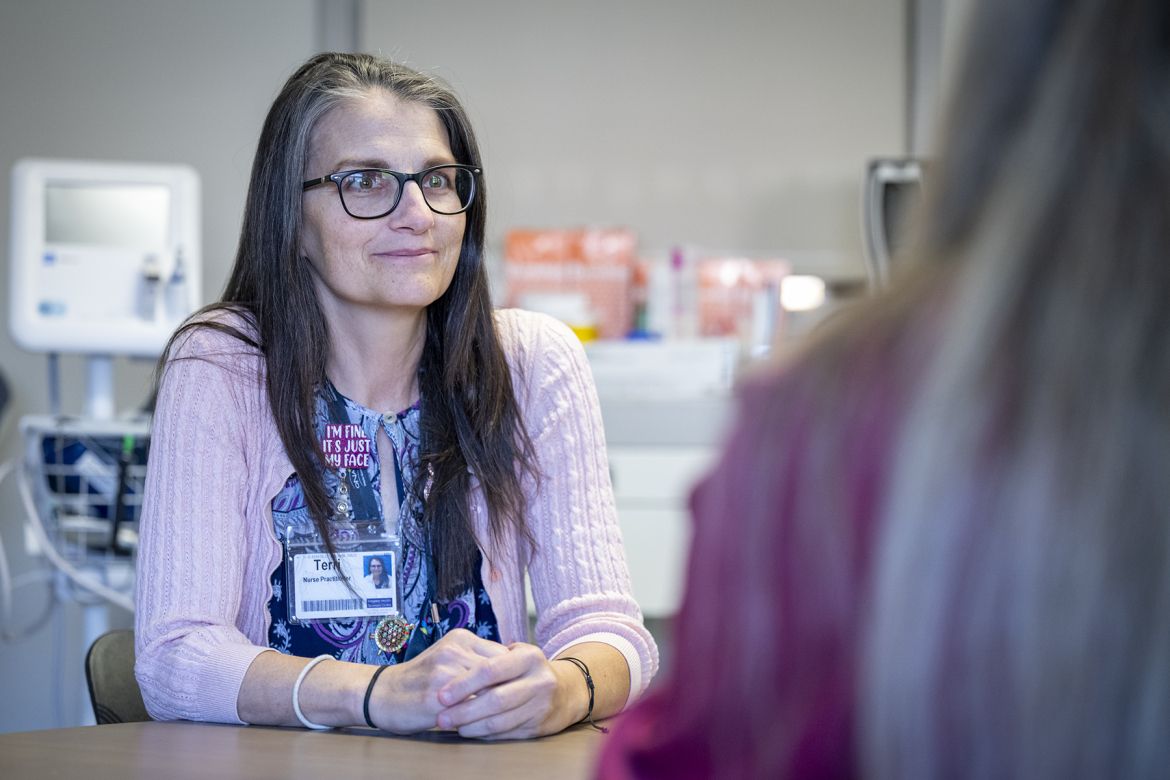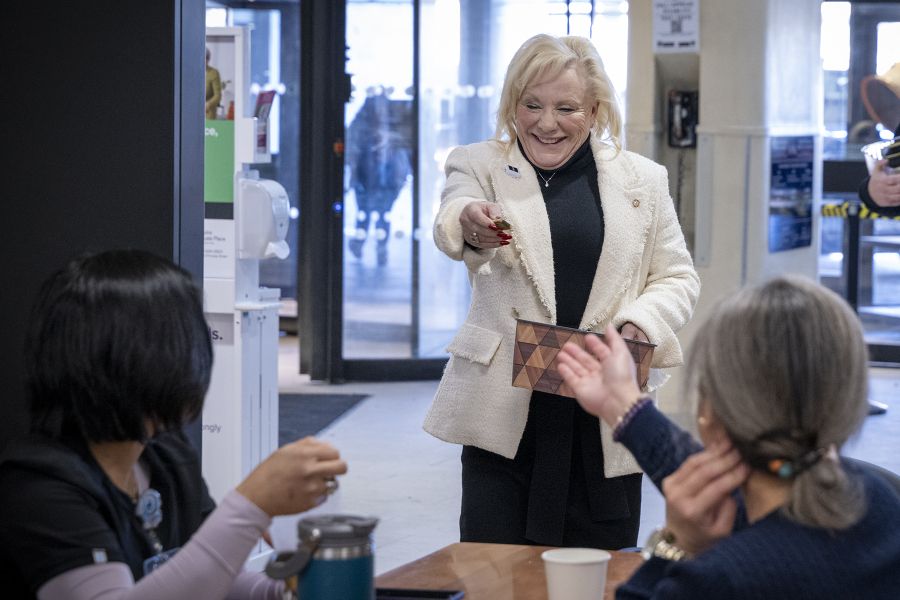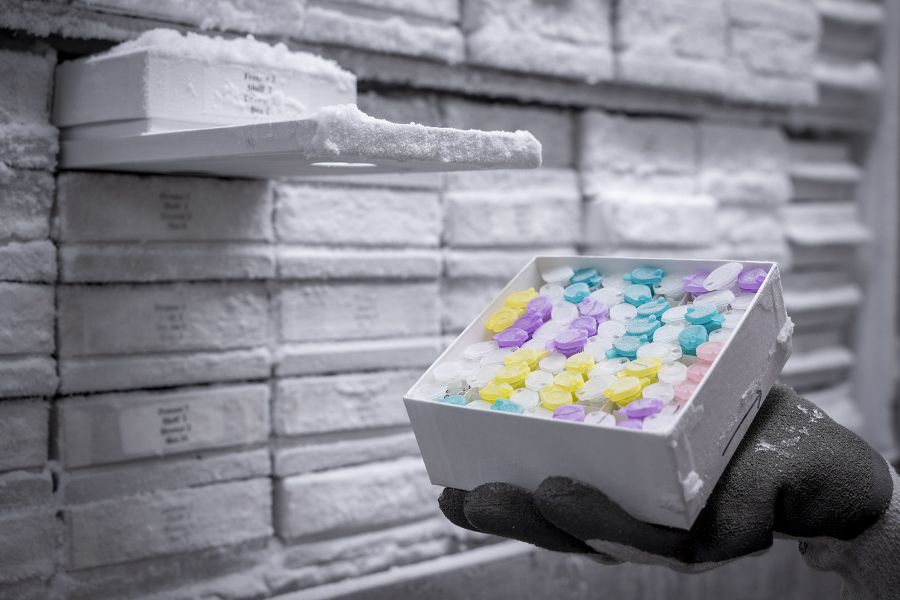
She’s many things… a wrestler, a cancer survivor, a single mom of three active boys, and a nurse practitioner at Kingston Health Sciences Centre’s (KHSC) Detoxification Centre.
Terri McNutt is all those things, and so much more.
She provides specialized addiction health care to clients who have stopped using substances and are in the earliest, most vulnerable stages of recovery. “I focus on keeping people safe and comfortable while their body clears the substance and starts to heal,” says McNutt. “I also provide primary care, as many clients don’t have a family health-care provider.”
Her deeply human role at the Detox Centre over the past 20 months has been to help move the centre toward a more medicalized model of care.
“It’s been life-altering for both clients and staff,” she says.
Today, with McNutt and Dr. Wilna Wildenboer-Williams available Monday through Friday, care is immediate, integrated, and person-centred.
“Without medical staff consistently on site, clients would have to be sent elsewhere for minor health concerns, or if they didn't have their own medication for concerns like heartburn or a headache.
“We can safely evaluate and manage withdrawal symptoms, prescribe as needed, and address other substance-use-related needs and general medical conditions. That continuity of care has had a real effect on recovery.”
Meeting clients where they are without judgement

She truly loves making a real difference in people’s lives and says she is “especially proud to be a listening ear and an advocate for people who are often misunderstood, misjudged, or treated unfairly.”
“Clients are often ashamed, afraid of how the medical team will see them. So it is essential to create a sense of safety, dignity, and respect.”
In some cases, sobriety takes several attempts, and when clients return to the centre, McNutt greets them with empathy.
“I’m glad you came back — that tells me you’re still trying,” she said to someone before they worked together to adjust the care plan, ease symptoms, and build trust. The client completed detox and asked for a referral to further treatment.
“That experience reinforced my belief that compassion and patience are often the most powerful medicines we can offer.”
On another day, a client was ready to leave against medical advice. “Instead of arguing, I sat with them, acknowledged they were scared, and explained in simple terms what their body was going through. A few minutes later, their breathing slowed. They stayed.
“I try to remember that how we show up matters as much as what we do. Being calm and compassionate can make the difference in helping someone to feel safe, seen, heard and confident in accepting care.”
Teamwork, perspective and gratitude
Her skills are rooted in keen clinical judgment, adaptability, and teamwork, but her practice is shaped just as much by personal experience.
As a varsity wrestling athlete and member of the national program, she learned early on to focus on what matters most. That mindset proved vital during her journey as a cancer survivor, when she experienced firsthand what it’s like to be vulnerable within the health-care system. Now, motherhood draws on that same resilience and keeps her grounded and grateful.
Balancing life as a single mom, a full-time nurse practitioner, and someone who’s faced a major health challenge hasn’t always been easy, but it’s possible because of the incredible support I have around me. I truly believe it takes a village, both at home and at work.
“I’ve learned that asking for help isn’t a sign of weakness, it’s a sign of strength. I remind clients of this often.”
Her commitment is mirrored by a team she describes as “amazing.” She credits both colleagues and leadership with supporting the bold changes that have made the centre safer, more compassionate, and more effective.
She also recognizes that community collaboration is key to helping clients transition successfully from detox to the next steps in their recovery journeys, and she and her team are committed to building those supportive, stable bridges together.
When asked who inspires her, McNutt mentions several mentors in accessible addiction care, and says clients are a constant source of motivation.
“The determination they show — coming back time and again to try, even after setbacks — is a powerful reminder of why this work matters. Their resilience, their honesty, their willingness to trust us, even when trust hasn’t always served them well, inspires me to show up every day with patience, humility, and hope.”



